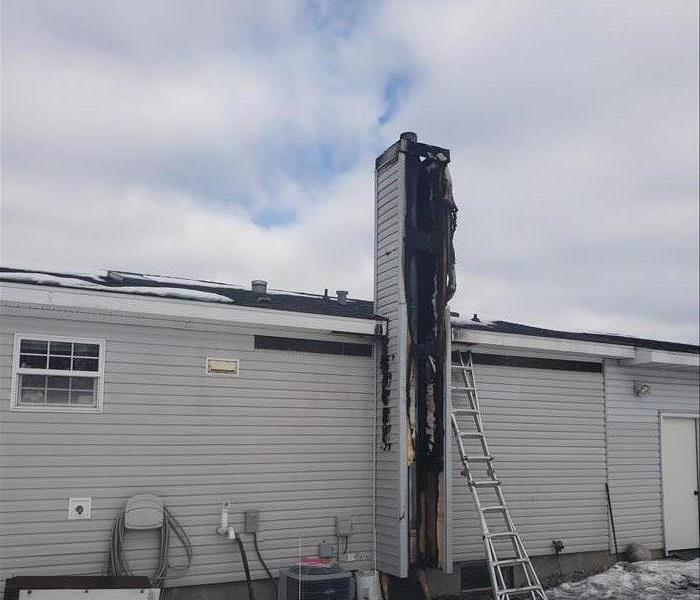Chimney Fires
3/18/2021 (Permalink)
 This chimney fire in Stevens Point, Wisconsin caused significant smoke damage to the inside of the house.
This chimney fire in Stevens Point, Wisconsin caused significant smoke damage to the inside of the house.
According to Wikipedia, “A chimney fire is the combustion of residue deposits referred to as soot or creosote, on the inner surfaces of chimney tiles, flue liners, stove pipes, etc.”
So, what is creosote? When wood burns, certain by-products or substances are produced. There is the smoke you can see, as well as things you cannot see like tar in the smoke, water vapor, gases, unburned wood particles, and assorted minerals. These by-products are warm, and when they pass through the cool chimney, condensation forms. The resulting residue sticks to the inner walls of the chimney creating something called creosote. Creosote is brown, sticky and highly flammable. If enough creosote builds up, and the temperature in the chimney becomes high enough, a chimney fire can erupt.
There are things you can do to help minimize your risk of a chimney fire. Here are three things to avoid that encourage the build-up of creosote:
- Burning wet and/or unseasoned wood or things like wrapping paper that may contain chemicals. Your wood should be seasoned or dried for at least 6 months after chopping and kept stored under cover to prevent it from getting wet. If you want to be extra certain your wood is sufficiently dry, you can purchase a cheap moisture meter (for more info on moisture meters see our previous blog post on what they are and how they work) at a hardware store. The moisture content of your wood should be no more than 20%
- Not having an adequate air supply. Always make sure your fire is getting enough air by making sure your chimney flue is completely open and the glass doors are open
- Avoid cooler chimney temperatures by ensuring your chimney is adequately insulted
But probably the most important thing you can do to avoid a chimney fire is to have your chimney regularly inspected and cleaned by a certified Chimney Sweep.



 24/7 Emergency Service
24/7 Emergency Service